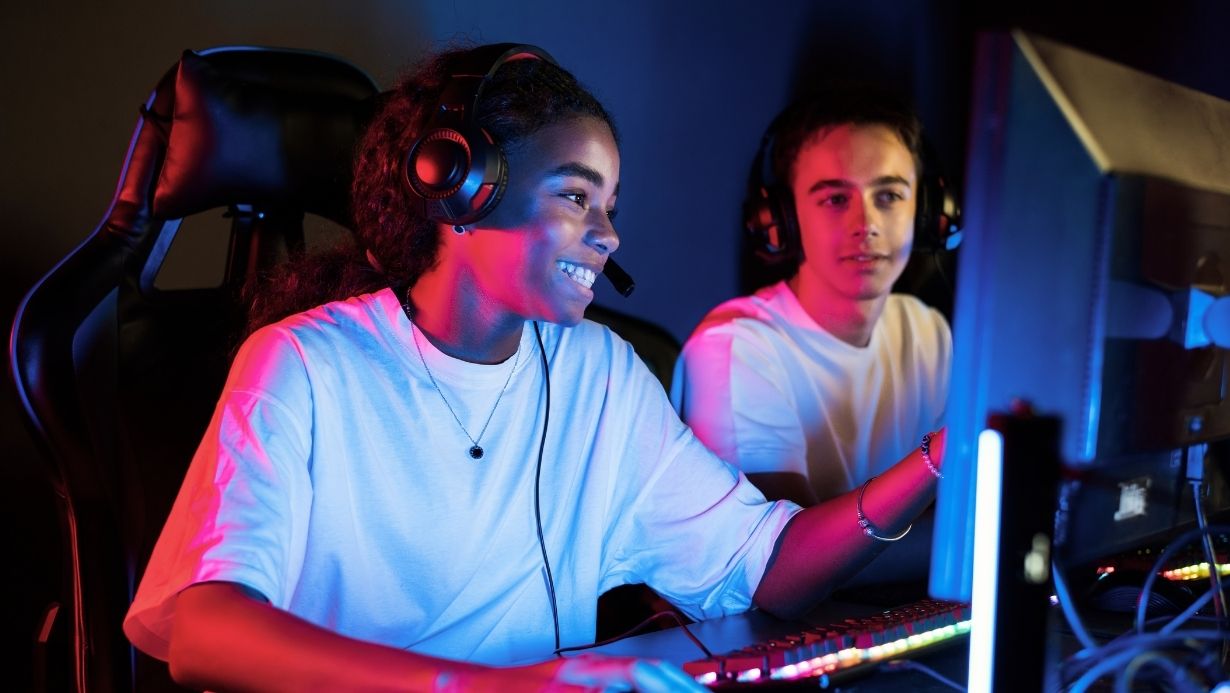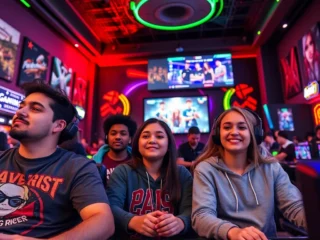
The project manager (PM) is an essential player in the project management hierarchy, regardless of whether it’s a small indie project or a full-fledged AAA game. They coordinate the different teams, timelines, budgets and ultimately make sure everything gets finished. Project managers are vital to seeing a game successfully produced. But what does a project manager do, in regard to a game development process? Let’s look at the responsibilities and tasks of a PM, and place them in the context of the game development process.
What Are the Core Responsibilities of a Project Manager in Game Development?
A game development project manager’s main job responsibilities are to manage the game production process, making sure the project is completed on time, on budget, and to specifications. Some of their main duties are listed below:
- Manage the Game Development Process: The PM will be responsible for and will want to make sure all the tasks, processes, and stages of development are completed correctly from concept to production. They will set objectives, provide clear timelines, and establish a Project Management plan and allocate the design and production resources needed to complete the project.
- Team Coordination: The PM is responsible for ensuring that all of the teams are aligned in trying to achieve the best product together (developers, artists, designers, etc.). They will ensure effective communication across all teams and departments and deal with those unique issues that come up along the way.
- Tracking Progress: The PM will track the progress of the project against the scheduled timeline, reporting on milestones, and deadlines and adjusting the timeline as necessary, while verifying everyone is meeting their required deadlines.
How Does a Project Manager Coordinate Between Artists, Developers, and Designers?
A game development studio typically contains multiple teams, each focused on their specialities such as game developers, 3D artists, and game designers. The project manager serves as the common point of coordination to help get teams to work together. They do the following:
- Facilitate Communication : The PM provides updates to team support members on the status of each department’s progress. They conduct regular meetings and report back to the team to keep the entire team informed of the overall project and to assess any changes or delays to deadline tasks.
- Managing Priorities: The project manager offers assistance with working through the activities across the teams. For example, if the artists have to push deadlines for assets for the game, the PM makes sure the developers are not blocked from progressing with their work at the same or similar deadlines.
- Resolving Conflicts: Conflicts may arise during any project and it may arise among departments or team members. The PM aims to assist with the resolution of conflicts quickly so that there is minimal effect on the development process.
What Tools and Methodologies Do Game PMs Use to Manage Workflow?
Proper game development services indeed require the proper tools and methodologies to effectively manage workflows. A project manager at a game development agency will generally utilize many tools to organize tasks, keep track of progress, and collaborate off and around teams. Some of the most common tools and methodologies include:
- Project Management Software: Tools like Trello, Jira, and Asana, are commonly used to create and assign tasks and track project progress and deadlines.
- Agile Methodology: Many game dev studios utilize the Agile methodology. More particularly, they utilize the Scrum framework, which segments the entire game development process into smaller sprints. Scrum keeps teams flexible to adapt to feedback and scope changes by quickly moving through iterations.
- Version Control Software: Tools like Git are used for version controlling the game codebase and game assets so developers are on the latest development version of the game, thereby maintaining collaboration.
How Does a Project Manager Help Keep the Game on Time and on Budget?
One of the primary responsibilities of a project manager is to guarantee the game is delivered on schedule and within budget. For this to occur, a PM must:
- Establish Realistic Deadlines: The PM is responsible for creating a development schedule that is realistic and takes into consideration the complexity of each task.
- Monitor Costs: The PM manages the budget and ensures that the resources are being used effectively. They work closely alongside the finance teams to track costs, assist the designers and producers to avoid overspending.
- Change Plans as Required: If there are delays or issues that prevent the team from working towards a deadline, the project manager has to be able to alter the schedule, and reallocate resources to ensure neither the schedule or budget prevails.
What Is the PM’s Role in Risk Management and Problem Solving?
There will always be risks because of the nature of game development. Game developers rely upon the PM to identify potential risks at the project initiation phase, and to develop a risk management plan. A few common risks in game product development include:
- Technical Issues: It is not uncommon for development to have bugs or technical breakdowns which halt or restrict critical path progress in developments, and can cost money. The PM is responsible for making sure that the developers team has the skills (ex. Knowledge of code) and ability (ex. Resources) available to solve these issues as expediently as possible.
- Team Problems: If a significant team member is ill, or leaves the project, it will be the PM’s responsibility to determine how the project will be affected, and whether either contingencies should be encouraged if either issue results in notable delay to the project.
- Market Developments: Depending on how long the game is developed, changes in trends in the gaming marketplace can change quickly! The PM should have, by this point, worked with the team to ensure that they can adapt where required to changes arising from changes in the market context.
How Does a PM Ensure Quality and Milestone Delivery in Game Projects?
The project manager is the person responsible for the quality of the video game, which is extremely important to a game’s success, and they do this by:
- Establishing Clear Milestones: The PM divides up the project into smaller milestones, and makes sure core features are completed when they need to be completed and that they are of sufficient quality.
- Consistent Testing: A PM also makes sure that playtesting and additional quality assurance (QA) are consistent as the game is being developed. This allows for bugs and design problem areas to be caught and fixed earlier in the process than if done later on with only polish-focused playtesting.
- Feedback Loops: The PM makes sure that feedback is communicated from all positions during the feedback loop process of the development cycle, including the designers, developers, and players.
What Soft Skills Make a Great Game Development Project Manager?
In addition to technical knowledge, game development project managers must have the following soft skills to be successful:
- Communication: The PM must communicate clearly the information, expectations, and updates, to both technical and non-technical team members.
- Problem-Solving: A great PM can think quickly and generate solutions to any unexpected problems that may arise in the course of the development.
- Leadership: The PM must inspire and motivate the team, maintain morale and unity toward the goals set.
Conclusions
A Game Project Manager is an important role in gaming project development. They provide oversight of timelines, budgets, and communication and coordination across departments. Assigning the role of project manager to personnel requires delicately navigating and balancing the needs of all elements that comprise a game project; creative, technical, or business. The goal of a project manager is to ensure projects are completed correctly, on time and on-budget. With the constant evolution of game development, having a quality project manager is an essential part of the development structure that can contribute to completing successful games that players love to play!



